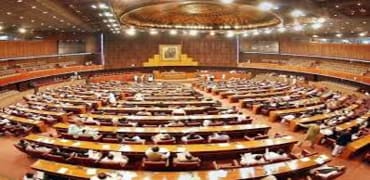DSS Screening of SAN Applicants: Turning “Silk” into State Security
DSS Screening of SAN Applicants: Turning “Silk” into State Security
The news that the Department of State Services (DSS) is now peering over the shoulders of lawyers applying for the coveted rank of Senior Advocate of Nigeria (SAN) has landed like a thunderclap in the legal community. For many, the reaction has been a mix of disbelief, dismay, and outright indignation. And why not?
The rank of SAN is a professional honour. The DSS is Nigeria’s secret police. The two have nothing in common — or at least, they shouldn’t.
The Boundaries Are Clear
The law that created the DSS did not mince words. Section 3 of the National Security Agencies Act gives the Service a narrow mandate:
To prevent and detect crimes that threaten Nigeria’s internal security.
To safeguard non-military classified information relating to national security.
That’s it. Nothing in this brief empowers the DSS to sniff around the professional records of lawyers vying for silk gowns.
On the other side of the equation, the Legal Practitioners Act (LPA), which governs the conferment of SAN, also leaves no room for ambiguity. Section 5(2) provides that a lawyer must:
have at least ten years post-call experience, and
have achieved distinction in the legal profession as determined by the Legal Practitioners Privileges Committee (LPPC).
The LPPC is the sole statutory gatekeeper here. Not the DSS. Not the EFCC. Not the ICPC.
What Really Counts
The 2022 Guidelines for the Conferment of SAN spell out what “distinction” means in practice. Applicants must:
present judgments where they made significant advocacy contributions (20 from the High Court, 5 from the Court of Appeal, 4 from the Supreme Court),
show evidence of good character and a clean disciplinary record,
demonstrate integrity, advocacy skills, and sound knowledge of the law,
contribute to legal scholarship and development,
and prove leadership and loyalty to the profession — including pro bono service.
These are serious, merit-based standards. They measure competence, commitment, and contribution. None of them requires a background check by secret police.
The Problem with the 2022 Guidelines
The controversy lies in Section 23(2) of the 2022 Guidelines, which sneaks in the DSS (alongside the EFCC and ICPC) by requiring that names of shortlisted applicants be forwarded for “confidential reports.”
This provision raises three red flags:
It conflicts with the principal law: Subsidiary instruments cannot override the parent statute. Time and again, the courts have struck down such contradictions (see Govt. of Oyo State v Folayan; Ishola v Ajiboye).
It was improperly authenticated: The Guidelines were signed only by the Chief Justice of Nigeria. But under the Interpretation Act, rules made by a multi-member body like the LPPC (15 members under the LPA) must bear the endorsement of at least two members. This defect casts doubt on the legal validity of Section 23(2).
It undermines constitutional rights: By inviting secret investigations without credible complaints, the provision collides with the presumption of innocence under Section 36(5) of the Constitution. As the Supreme Court stressed in Afolabi v Gov. of Oyo State, such provisions must be strictly read in favour of personal freedom.
Down the Slippery Slope
If DSS vetting is allowed to stand, what next? Should law students face clearance before Law School admission? Should universities send fresh graduates through DSS background checks before awarding degrees?
Why stop at SAN? Why not let the DSS screen doctors before they take the Hippocratic oath, or journalists before they collect their press tags?
The absurdity speaks for itself.
Where the Line Must Be Drawn
The LPPC, and only the LPPC, has statutory authority to decide who becomes a Senior Advocate of Nigeria. Anything else is a usurpation, plain and simple.
The DSS has no business playing judge of professional merit. Its involvement is not only ultra vires but also corrosive to the very dignity of the SAN rank. If allowed to continue, this intrusion will transform a professional badge of honour into a political tool — one more lever of control in a system already straining under too much of it.
Final Word
The practice must stop. The LPPC must reclaim its authority and scrap this dangerous clause before it metastasizes. The integrity of the legal profession demands no less.
Thought for the Week:
“When the rule of law is policed by fear, professionalism dies in silence. Merit, not surveillance, should be the measure of honour.”
By Haruna Yakubu Haruna

















